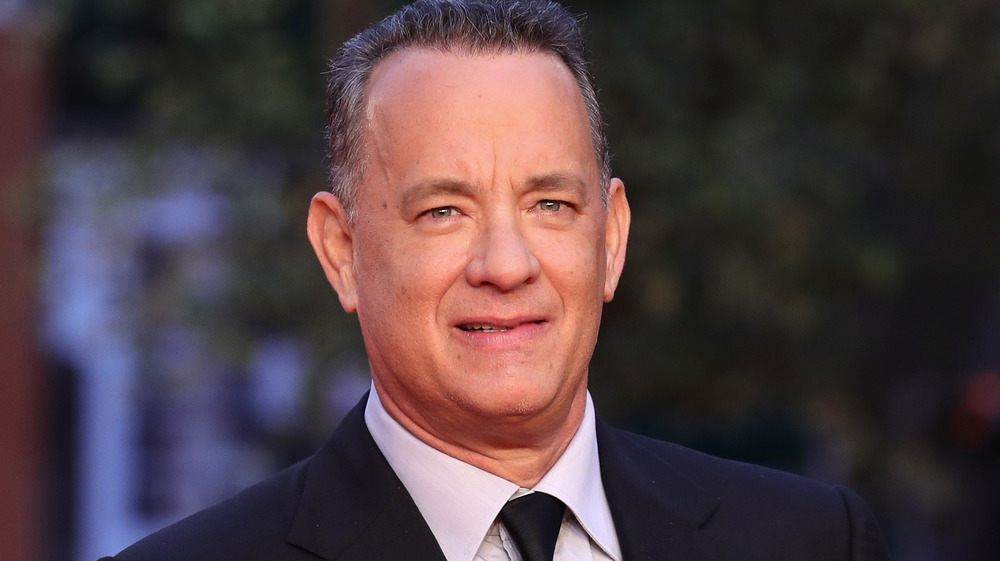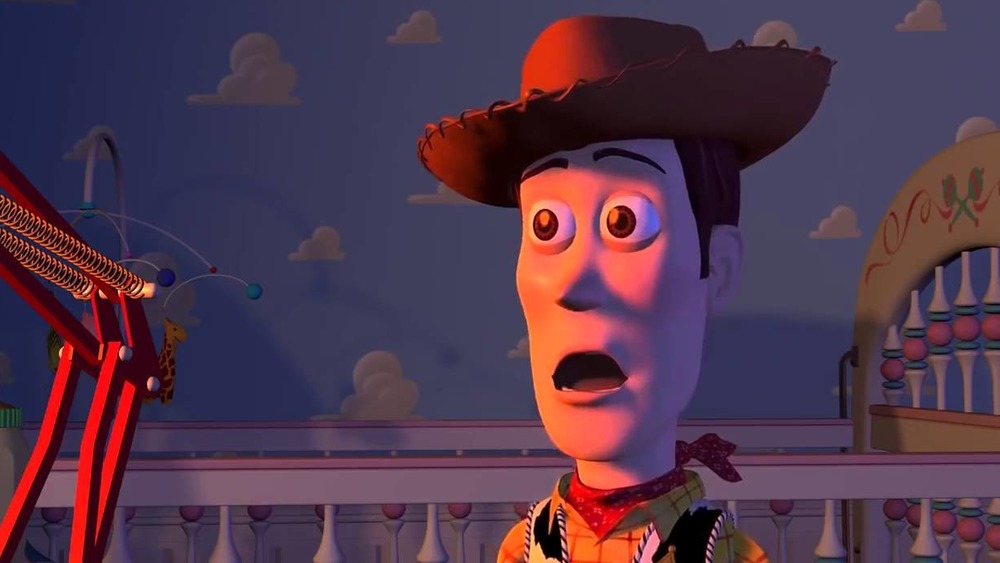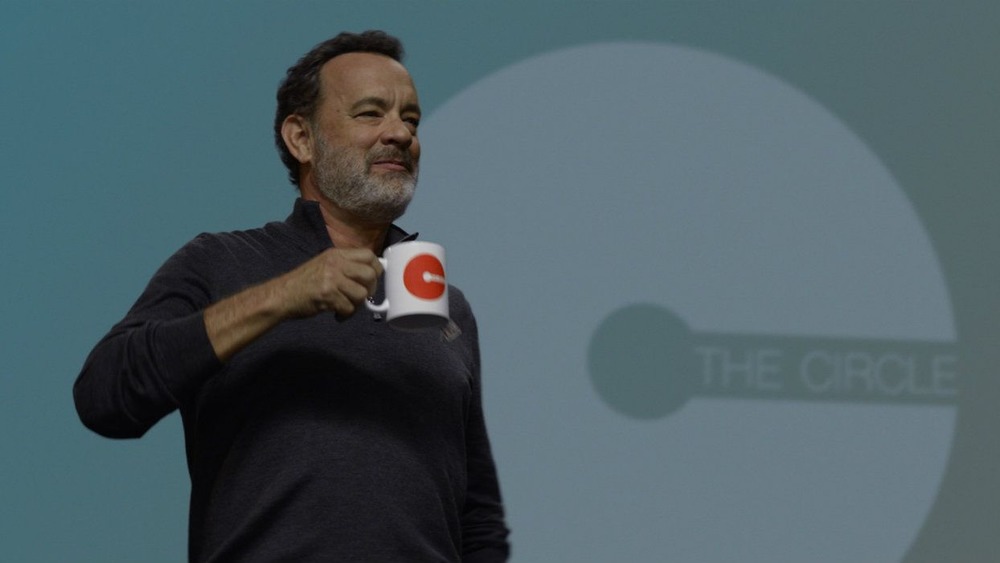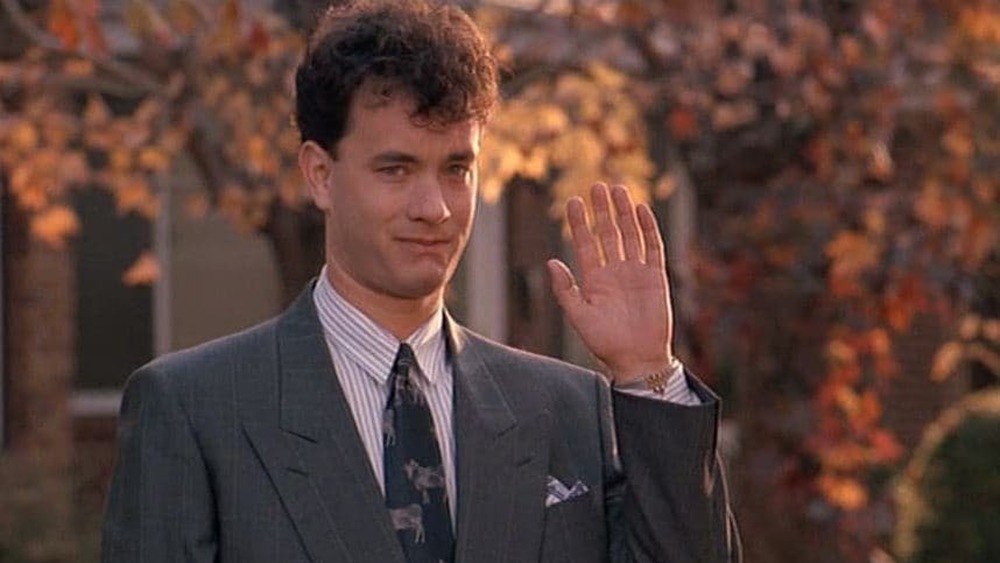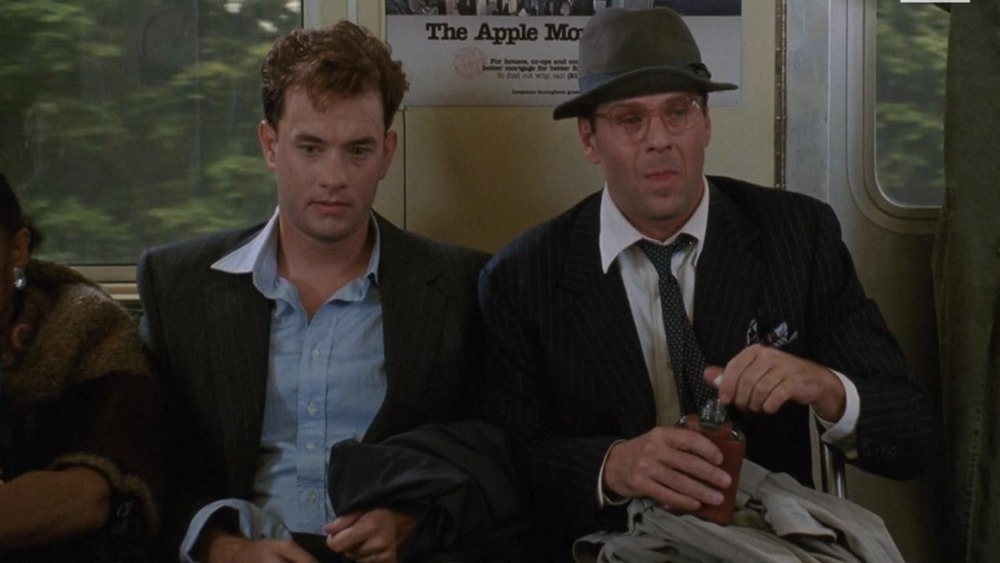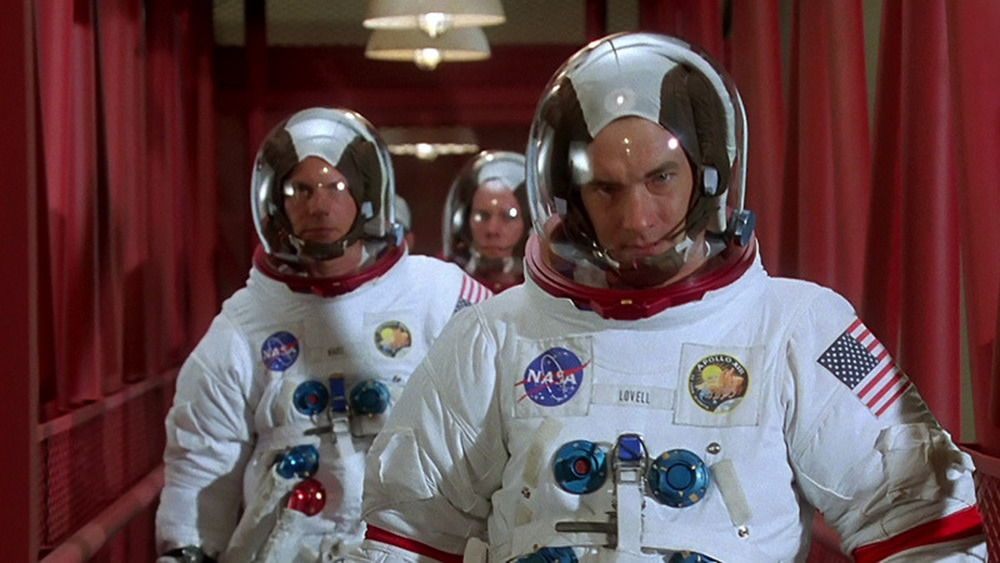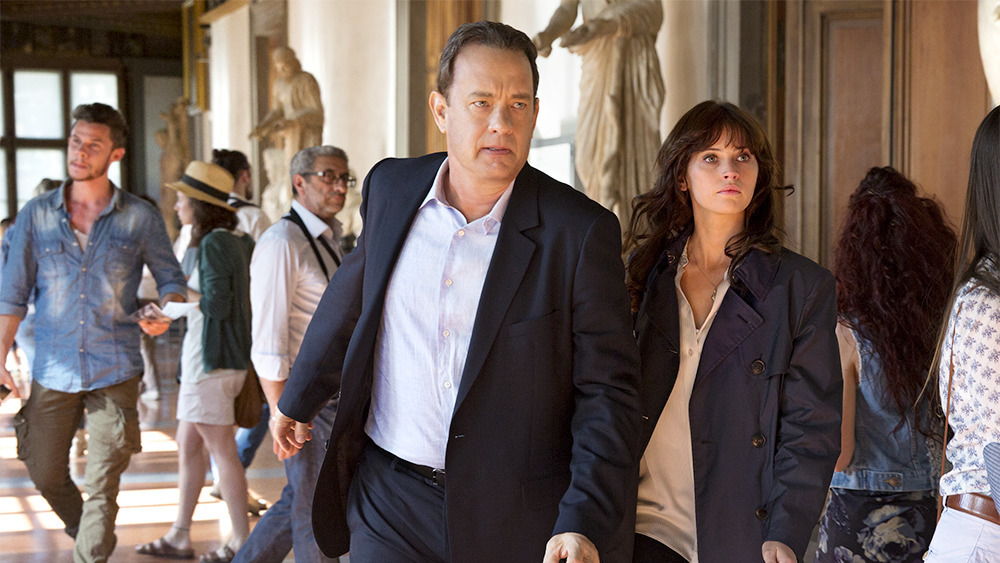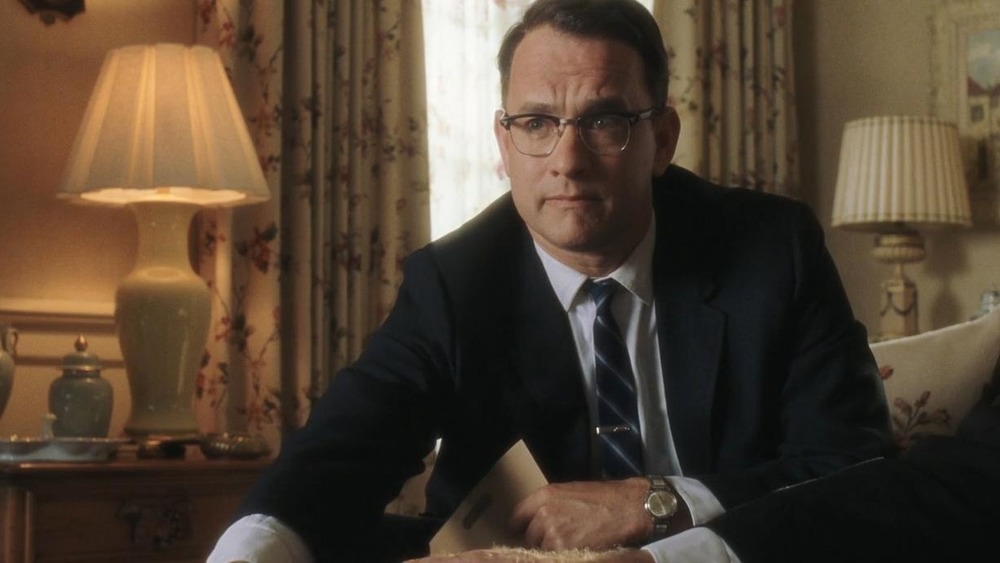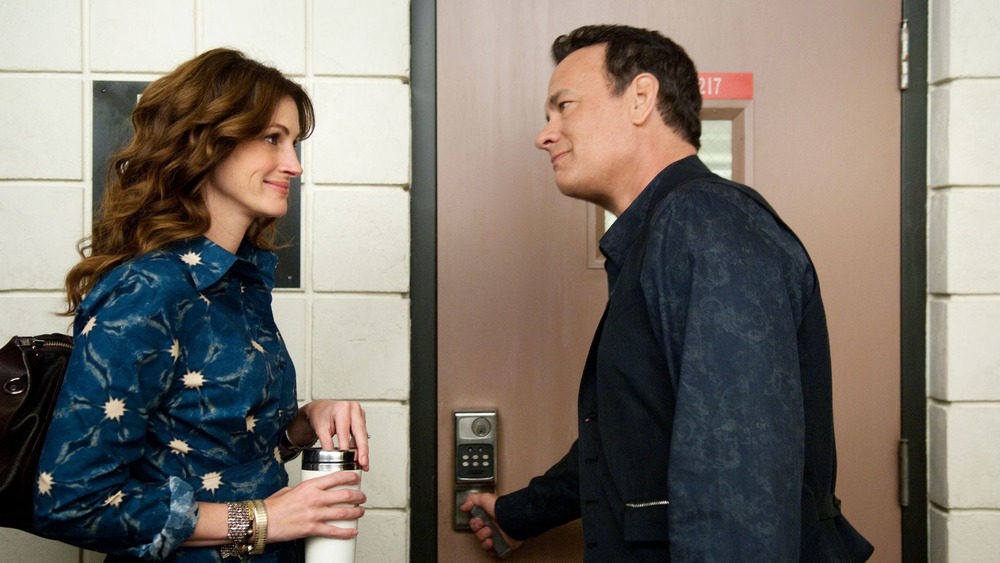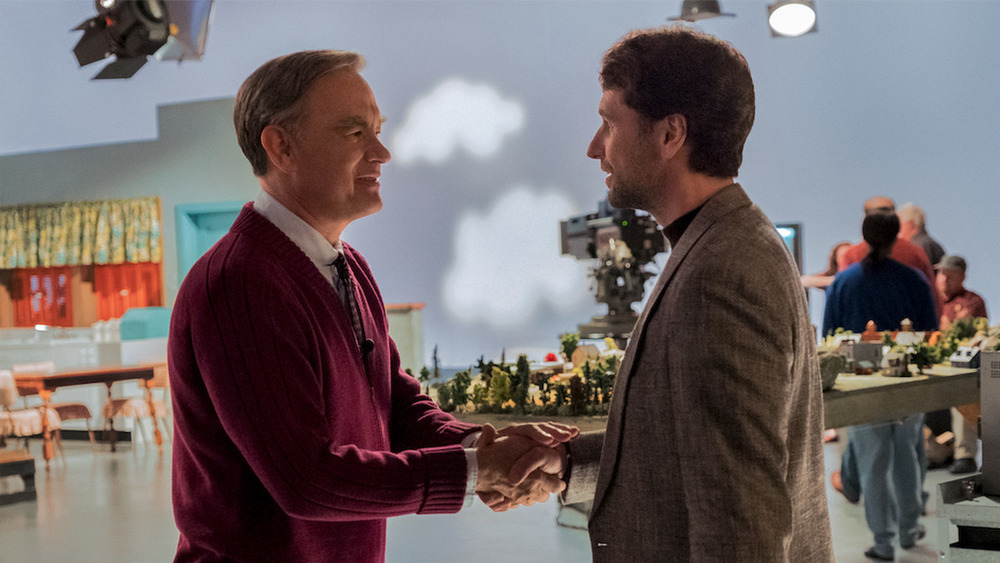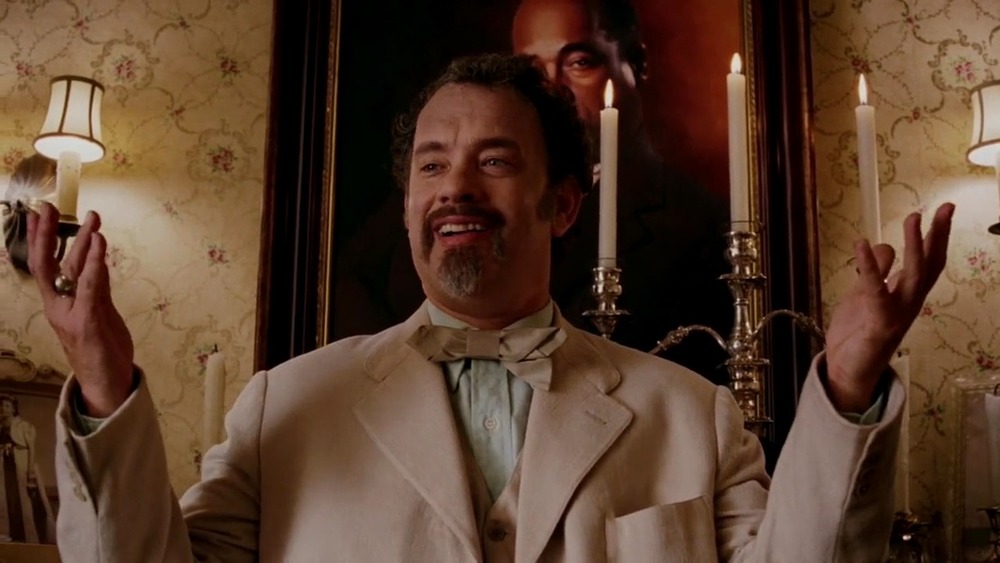Tom Hanks' Best And Worst Movies
Is there anything more comforting than sitting down to watch a movie and seeing that wonderful warm hug of an actor, Tom Hanks, emerge on the screen? Over more than 40 years working in Hollywood, Hanks has made us laugh, made us cry, and made us fall in love all over again, bringing us performances that span romantic comedies, epic Oscar-winning dramas, and some of the funniest comedies on the silver screen.
In other words, Tom Hanks (or America's Dad, if you prefer) has had a wide-ranging career full of films that have completely won over audiences. But believe it or not, he's also made movies that have completely alienated viewers. For every masterwork, there's a flop hiding in the shadows, and we're here to highlight the highest highs and the lowest lows throughout the booming filmography of one of America's most well-known and well-loved performers. So strap in as we journey through the best and worst films of Tom Hanks!
Best: Tom Hanks brought Sheriff Woody to life in Toy Story
Even though you don't catch a glimpse of Tom Hanks' face in any frame of Pixar's debut feature masterpiece, 1995's Toy Story, it's impossible to separate the epic animated quadrilogy from the impeccable charm of Sheriff Woody. After all, Hank uses his unique voice to imbue the toy cowboy with all the humor, authority, and heart that's permeated his live-action career. As for the plot of the first film, we follow Woody's quest to remain the favorite toy of his owner, Andy, after a new, flashy Buzz Lightyear doll joins the foray. And during the sheriff's misadventures, Hanks brings Woody to life with such a spark that it made the cowboy an immediate iconic figure in the animated world.
As groundbreaking as Toy Story was, being the first computer-animated feature film for mainstream audiences, it wouldn't have succeeded without the work of its stellar cast, especially with Hanks at the helm. The man provides the film with a sense of utter assurance in its own craft. All these years later, it's nearly impossible to imagine the Toy Story franchise without Hanks' Woody front and center, and it still remains a memorable moment in his illustrious career.
Worst: The Circle is incredibly dull
No, this isn't a cinematic adaptation of the hit Netflix reality show (though that sounds pretty fantastic when you think about it). This is Dave Eggers' ever-fearful "watch out for the dangers of technology" novel brought to life in 2017's The Circle. The film stars Emma Watson and Tom Hanks, and its reputation sadly precedes it as easily one of the worst entries in the Hanksography. Not even a supporting cast featuring John Boyega, Karen Gillan, and Patton Oswalt is enough to make sitting through this bore of a feature worth it.
Hanks, who'd previously visited the Eggers well in the similarly disliked A Hologram for the King, leaves little-to-no impression as CEO Eamon Bailey, practically sleepwalking through a film concerned with the dangers of a surveillance-heavy technical world. Stuck between the leanings of a typical YA fantasy film and a "Serious Drama about Big Themes," The Circle ultimately leads to nowhere but a dead end for Hanks and everyone else involved.
Best: Big set Tom Hanks down a path to stardom
The film that earned him his first Oscar nomination for Best Actor (an award he would later win twice in a row for Philadelphia and Forrest Gump) and the movie that solidified Hanks as the star of his generation, 1988's Big is a charming tale of being careful what you wish for. Directed by Laverne & Shirley's Penny Marshall, the film follows 12-year-old Josh Baskin who wishes upon a Zoltar fortune-telling machine, and he wakes up the next morning as a full-grown Hanks-ified adult. And yeah, plenty of hilarious antics follow.
It's truly something of a performance marvel, being able to pull off the role of a young kid trapped in an adult's body, but Hanks does it with gusto and then some, turning a fantastical premise into something surprisingly human. If Hanks wasn't a household name before, Big all but solidified him as the next great American movie star, and it set him on the course for an illustrious career ahead. Plus, it gave us that scene of Hanks and Robert Loggia playing "Chopsticks" by jumping on a giant keyboard. That right there is cinematic gold.
Worst: The Bonfire of the Vanities was a massive bomb
In his quest to work with as many great film directors as possible, it makes absolute sense that Tom Hanks wanted to team up with acclaimed filmmaker Brian De Palma on a new film. But 1990's The Bonfire of the Vanities, an adaptation of the book of the same name by Tom Wolfe, ended up as a disaster for all involved, including fellow stars Bruce Willis, Melanie Griffith, Morgan Freeman, and Kim Cattrall. In fact, it's one of the most infamous flops of the early '90s.
The film — telling the story of a Wall Street hotshot (Tom Hanks) whose deadly crime sparks a courtroom case of epic proportions in 1980s New York — takes all the dimension, weight, and subtlety out of Wolfe's original book and flattens it into a completely narrow, inept, and offensive piece of stylistically inert filmmaking. As a result, the movie absolutely tanked at the box office, earning $15.6 million against its budget of $47 million. When it comes to book-to-screen adaptations, you're best to stick with the Bonfire on the page.
Best: Apollo 13 features of one of Tom Hanks' most heroic performances
Throughout his long and storied career, Tom Hanks has completely mastered the art of playing heroes — especially heroes who are based on the lives of real people. From Captain Phillips and Sully to James B. Donovan in Bridge of Spies, Hanks has a complete grip on the gravitas necessary to bring these true stories to fictional life. And none of his characters are more heroic than that of Commander Jim Lovell in 1995's space epic Apollo 13.
Based on miraculous true events, Ron Howard directed the hair-raising story of a trio of astronauts trapped in a malfunctioning spacecraft, forced to rely on nothing but their ingenuity to try and get back to Earth safely. Hanks uses this role to completely hone in on his command of absolute heroics, holding his own in an impossible situation. It's a mode of performance that he's hollowed out for himself that he revisits every once in a while throughout his career, but, well, he's a master at it, so there's no complaining here.
Worst: It's no mystery that Inferno is an awful movie
It's might be tough to remember how much of an absolute phenomenon Dan Brown's series of Da Vinci Code novels were, but — maybe for the best — it's even harder to remember the absolutely ghastly cinematic adaptations of those books, all directed by Ron Howard and all starring Tom Hanks in an atrocious "who approved this?" hairstyle. And on top of that, they all hit different levels of mediocre to unwatchable.
By the time the third and inexplicably worst entry, 2016's Inferno, was released — seven years after its predecessor, no less — the biggest mystery to solve was why these movies kept getting made. Maybe Dan Brown's interlocking mysteries are enjoyable on the page, but the film adaptations, especially Inferno, suck all the joy, intrigue, and fun out of the proceedings, leading to a trilogy of ineptitude that will forever linger amongst the many jewels of Tom Hanks' otherwise sterling career.
Best: Catch Me If You Can is a fantastic Hanks/Spielberg collaboration
Beginning with 1998's Saving Private Ryan, Tom Hanks formed a bond with director Steven Spielberg that's spanned over the course of five films and counting, including eclectic turns in The Terminal, The Post, and Bridge of Spies. But it's 2002's Catch Me If You Can that might stand out as their finest collaboration, telling the exaggerated account of the life of con artist Frank Abagnale (Leonardo DiCaprio in one of his best roles), and his cat-and-mouse encounters with Hanks' FBI agent, Carl Hanratty.
Though Catch Me If You Can firmly stands as a brilliant vehicle for Leonardo DiCaprio, acting as the hinge between his youthful dreamboat roles and the more mature, unhinged second act of a career, the same thing could be said for Hanks' Hanratty. It's a role of complete authority that, paired with his paternal relationship with DiCaprio's character, signaled the final shift away from any vestige of Hanks' more youthful parts. Hanks fully moved to a new phase of performance, and it's one we're all the better for having in our world.
Worst: Larry Crowne shows the great actor isn't a great director
Tom Hanks' directorial career, unfortunately, has yet to meet the heights of his acting career, and that's more than evident in this completely forgettable entry in his filmography, 2011's Larry Crowne. At least with Hanks' directorial debut, That Thing You Do!, audiences were able to coast on that film's impeccable soundtrack and especially catchy title number penned by the late, great Adam Schlesinger. No such luck can be found in the dismally droll world of Larry Crowne, about a middle-aged man returning to community college to gain the education he never had.
Everything on display here, from Hanks' performance and his workman-for-hire style of directing to the complete weightlessness of the script co-written by himself and Nia Vardalos, amounts to a film that isn't bad, per se. But it leaves no sort of memorable dent in the career of everyone's favorite everyman. One hopes that any future directorial efforts from Hanks leave more of an impression than this one.
Best: In A Beautiful Day in the Neighborhood, Tom Hanks gives a fully fleshed-out performance as Mr. Rogers
If you're looking for a perfect Hollywood analogue to the good-hearted, neighborly spirit of TV host Fred Rogers, it's hard to find anyone other than Tom Hanks to take that place. Thus, his role in 2019's A Beautiful Day in the Neighborhood seems almost too perfect, casting Hanks as the ineffable Mr. Rogers. In the film, the television legend is the subject of a depressed reporter's next story, thus kicking off a domino effect of human compassion, forgiveness, and empathy.
But, as usual, Hanks doesn't just play this one safe. Beneath the kindly, humanist nature of Fred Rogers, Hanks allows for a level of deep anger, sadness, and frustration with a world that's filled with souls who can't allow themselves to be as kindly as he hopes they'd be. It's this extra dimension of pain that takes Hanks' performance to another level, and it shows that kindness lives deep within all of us, but so does heartbreak.
Worst: The Ladykillers was a disaster for both Hanks and the Coen brothers
Often considered the worst film from legendary directors Joel and Ethan Coen, The Ladykillers (the only true remake in the Coens' filmography) tries to echo the pathos and thematic nuances of so much of the rest of their work. But unfortunately, it succumbs to its own attempts at oddball humor and slapstick, which is especially depressing when handled by the notably impressive cast of Hanks, Marlon Wayans, J.K. Simmons, and Irma P. Hall.
It's one of Hanks' most oddball performances, and there's certainly no lack of effort on his part to make the illustriously named Goldthwaite Higginson Dorr a unique and eccentric character within his personal roster. But the film just isn't able to tie together its lofty thematic goals and its less-than-humorous approach to comedy (not to mention the not-so-great stereotyping of Black Southerners baked into the premise of the film). For both the Coens and for Tom Hanks, The Ladykillers was, regrettably, a film that was dead on arrival.
